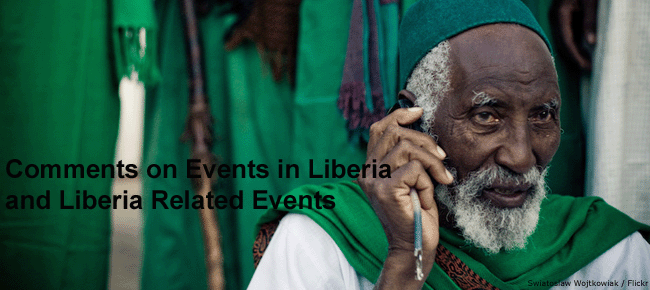Monday, May 26
An end to impunity in Africa?
Charles Taylor is not the only former African head of state who is accused of crimes against humanity and war crimes and is being prosecuted. Today it was announced that Ethiopia’s Supreme Court has sentenced former Ethiopian ruler Mengistu – in absentia – to death. Already in 2006 Mengistu was found guilty of genocide after a 12-year trial and was sentenced to life in prison, but the State prosecutor lodged an appeal to demand the death sentence for the Red Emperor and his aides. The ‘Red Emperor’ – Mengistu’s nick-name – has lived in Zimbabwe since 1991. President Robert Mugabe has said he will not be extradited, but a presidential run-off is due next month in Zimbabwe and in case opposition leader Morgan Tsvangirai would win the elections, this decision could be subject to change.
In Senegal, another former African ruler is hunted. Since 1999 the victims of Chad’s exiled former president Hissène Habré are pressing the government of Senegal to prosecute Habré, accused of crimes against humanity, war crimes and torture committed during his 1982-1990 rule. Ex-dictator Habré was first indicted in Senegal in 2000 and the Senegalese authorities even arrested him in November 2005. The following year, in July 2006, the African Union mandated Senegal to prosecute Habré, to which Senegalese president Abdoulaye Wade agreed. Unfortunately, for several reason the Senegalese government is delaying opening proceedings against the former Chadian dictator who has lived in exile in Dakar, capital of Senegal, since 1990.
What do these three cases teach us?
I think that it is too early to conclude that the trials against Taylor and Mengistu and the efforts to bring Habré to trial announce a new dawn in Africa, more justice, less impunity. But they do give hope. However, recent political developments in Ethiopia where Meles Zenawi cracks down on the opposition, the refusal of Robert Mugabe in Zimbabwe to step down and the outburst of xenophobia in South Africa are opposite signs. How should we appreciate what happens? One step forwards, two steps backwards – or two steps forwards, one step backwards?
Related links:
Ethiopia’s Supreme Court sentences Mengistu to death:
http://news.bbc.co.uk/2/hi/africa/7420212.stm
Human Rights Watch: The case against Hissène Habré:
http://www.hrw.org/justice/habre/
Open letter to the international and African communities from the International Committee for the fair trial of Hissène Habré:
http://www.hrw.org/english/docs/2008/04/29/africa18666.htm
Senegal: Ex-dictator of Chad arrested:
http://www.hrw.org/english/docs/2005/11/15/chad12031.htm
2008/05/27
Subscribe to:
Post Comments (Atom)


No comments:
Post a Comment